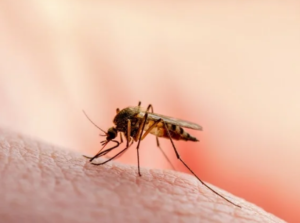A recent study suggests that there is potential for malaria reduction in pregnant women with HIV.

In women living with HIV, preventive treatment with DHA-PPQ is a safe and effective strategy to prevent malaria during pregnancy, according to the final results of MAMAH, a clinical trial funded by the European & Developing Countries Clinical Trials Partnership (EDCTP) and coordinated by the Barcelona Institute for Global Health (ISGlobal), an institution supported by “la Caixa” Foundation. The study, published in the Lancet Infectious Diseases, could help protect the health of the estimated one million pregnant women who suffer from a double infection with malaria and HIV every year.
Pregnant women are particularly vulnerable to malaria infection. Hence the recommendation to offer preventive treatment (IPTp) based on sulphadoxine and pyrimethamine (SP) to pregnant women living in malaria-endemic areas. The problem is that these drugs are incompatible with co-trimoxazole (CTX), an antibiotic given to people with HIV to prevent bacterial infections.
“This means that the population most vulnerable to malaria infection and its consequences, namely pregnant women living with HIV, are also the least protected,” explains ISGlobal researcher Raquel González, technical coordinator of the MAMAH project, led by Clara Menéndez, director of ISGlobal’s Maternal, Child and Reproductive Health Initiative.
Also Read >>> Business Development Executive: Apply Now
The aim of the project was to evaluate the safety and efficacy of two other drugs: dihydroartemisinin and piperaquine (DHA-PPQ) to prevent malaria during pregnancy in women living with HIV. The research team conducted the trial in Gabon and Mozambique with more than 600 pregnant women taking CTX in addition to antiretroviral treatment for HIV. One group of pregnant women received DHA-PPQ and the other group received a placebo.
Lower risk of malaria infection and disease
Although there was no significant difference in malaria infection at the time of delivery, women in the DHA-PPQ group had a significantly lower risk of developing clinical malaria throughout pregnancy (almost eight times lower than the placebo group) and also a lower risk (almost half) of becoming infected. DHA-PPQ was effective in women taking different antiretroviral treatments. No serious side effects were observed, and DHA-PPQ had no effect on mother-to-child transmission of HIV.
Also Read >>> THE POSITION UNDER THE LABOUR LAW STATUTES